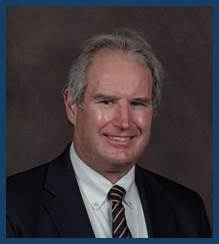
Health workers play a crucial role in providing quality care and saving lives. Unfortunately, they often face significant risks and challenges in their work environments, including the pervasive issue of workplace violence. Workplace violence encompasses physical assaults, verbal abuse, intimidation, harassment, bullying, and sexual violence. As a result, there are severe consequences for health workers’ well-being and a distracted care provider places the continuity of patient care at risk.
HOSPITAL AND HEALTHCARE SECURITY CONSULTANT
The Scope of Workplace Violence
According to the Occupational Safety and Health Administration (OSHA), healthcare workers are at a significantly higher risk of experiencing workplace violence compared to workers in other industries. The U.S. Bureau of Labor Statistics (BLS) reports that in 2021 alone, there were 27,400 recorded incidents of workplace violence in healthcare settings, resulting in 22,000 injuries and tragically claiming the lives of 10 individuals. These alarming statistics shed light on the severity of the issue.
Furthermore, a recent study conducted during the COVID-19 pandemic revealed that a staggering 44% of nurses experienced physical violence, while 68% encountered verbal abuse. As healthcare security and workplace violence consultants, we continue to see an upward trend in workplace violence despite the passing of the pandemic. These distressing figures underscore the urgent need for hospitals and healthcare systems to address and prevent workplace violence within the healthcare sector.
Laws and Regulations
To address the urgent issue of workplace violence targeting health workers, a range of laws, documents, and regulations have been established or proposed at both the federal and state levels. These measures are specifically designed to safeguard the well-being of health workers and compel employers to implement comprehensive prevention plans. The examples provided below highlight significant efforts aimed at fostering a secure and supportive work environment, placing a strong emphasis on prevention and appropriate response:
1. The Occupational Safety and Health Act (OSH Act)
Is a federal law that was enacted in 1970. The OSH Act requires employers to provide a safe and healthful workplace for their employees. This includes addressing workplace violence risks. Employers are required to develop and implement a violence prevention plan. This plan should include a risk assessment, procedures for reporting and investigating incidents, and training for employees on how to prevent and respond to violence.
2. The Health Insurance Portability and Accountability Act (HIPAA)
Is a federal law that protects the privacy of patient health information. HIPAA’s privacy rule prohibits healthcare providers from disclosing patient health information without the patient’s consent, except in certain limited circumstances. However, the privacy rule does allow healthcare providers to disclose patient health information if they believe that doing so is necessary to prevent or lessen a serious and imminent threat to the health or safety of a patient or other individual.
For example, a healthcare provider may be allowed to disclose a patient’s name and address to the police if the provider believes that the patient is a danger to themselves or others. Similarly, a healthcare provider may be allowed to disclose a patient’s test results to a family member if the provider believes that the family member needs to know the results in order to prevent harm to the patient.
3. Workplace Violence Prevention for Health Care and Social Service Workers Act (H.R. 1195)
Is a bill that was passed by the U.S. House of Representatives in 2021. The bill aims to require certain employers in the healthcare and social service sectors to develop and implement comprehensive workplace violence prevention plans. Compliance with an occupational safety and health standard issued by the Department of Labor would be mandatory.
The bill is currently being considered by the U.S. Senate. If the bill is passed by the Senate and signed into law, it would be the first federal law to require employers in the healthcare and social service sectors to develop and implement comprehensive workplace violence prevention plans.
4. The Fact Sheet: Health Care Workplace Violence and Intimidation, and the Need for a Federal Legislative Response,
Published by the American Hospital Association (AHA) in 2022, highlights the urgent need for a federal legislative response to address workplace violence in the healthcare sector. The AHA advocates for the Safety from Violence for Healthcare Employees (SAVE) Act, which aims to protect healthcare workers by criminalizing assault and intimidation against them. The act also empowers federal prosecutors to pursue cases, mandates incident reporting to law enforcement, and establishes a national database of offenders.
5. The Joint Commission (TJC)
Is a non-profit organization that accredits and certifies healthcare organizations in the United States and other countries. The TJC has a set of standards that healthcare organizations must meet in order to be accredited. These standards include preventing workplace violence. In 2022, TJC instituted new requirements for hospital workplace violence programs. Strategic Security Management Consulting’s hospital security experts and workplace violence consultants recently published an article to assist hospital administrators to understand the new Joint Commission’s standards, how to comply, and describe best practices for workplace violence prevention and response. (Click here to access the article).
HOSPITAL AND HEALTHCARE SECURITY EXPERT
Workplace violence poses a significant threat to health workers and patient care. Recognizing the gravity of this issue, laws and regulations have been enacted to protect health workers and promote prevention. However, legislation may vary by state and industry, necessitating ongoing efforts to ensure comprehensive protection. At Strategic Security Management Consulting, we specialize in providing security solutions tailored to healthcare settings. With our extensive experience, we are committed to helping healthcare organizations create safe and secure environments for their employees, patients, and visitors. Please contact us today to learn more about how we can assist you. You can reach us online or by phone at 407-385-9167. By uniting efforts and prioritizing workplace safety, we can ensure that health workers can perform their critical roles in a secure and supportive environment.













